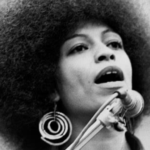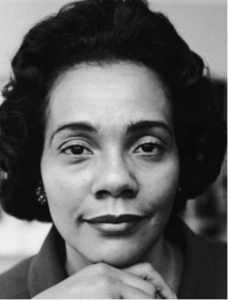Introduction…
The Covid-19 pandemic, social and political dissension, and racial discord have contributed to America’s greatest mental health crisis. This mental health challenge is even more significant in African American women, where the Strong Black Woman schema (SBWS) and stigma of mental health in the African American communities create even more barriers for prevention and treatment of mental health conditions. The Strong Black Woman schema is a racially gendered, cultural expectation placed on African American women to exemplify signs of emotional strength, determination, and caretaking qualities while continuously facing adversity.[1] The combination of the SBWS and the stigma of mental health in the African American community inhibit mental health seeking behaviors in African American women. A combination of self-silence, self-reliance, and self-sacrifice typical of SBWS potentially leads to feelings of isolation, depression, and anxiety as precursors to hypertension, diabetes, obesity, and cardiac disease.[2]
Background…
The weight of the SBW ideology is intensified by the strain of the stressors of the African American community. Socioeconomic status and racism continue to impact the mental health of the Black community, as Black Americans are represented more in jails, prisons, and mental health facilities.
Black Americans account for 37 percent of drug arrests, but only 14 percent of drug users. Black Americans are more likely to be diagnosed with schizophrenia, more likely to die of suicide (8.3 % compared to 6.2 %), and more likely to be involved in a violent crime.[3] The addition of delayed treatments secondary to an increase in un-insured African Americans has only added to the problem (75% of Caucasian received mental health treatment, compared with 40% African Americans); with many negative treatments leading to a mistrust of authorities, and only 7 percent of Black women with symptoms of mental illness actually seeking treatment.[4]
African American women, exposed to the pressures of SBWS and the stigma of mental health in the African American community, suffer under tremendous levels of stress and mental instabilities. These women tend to be demanding on others and themselves, as they fail to share life’s responsibilities.
They are viewed as strong, resilient, and invincible; which are positive characteristics that are stretched to the point of emotional exhaustion, and mental and physical decline.[5] This situation is further complicated by the stigma of mental health in the African American community, while contributing factors are: 1) A mistrust of the medical profession secondary to historical experiences, 2) Cultural and social barriers between the patient and provider, and 3) Dependence on family and religious communities.[6]
Let’s Review…
The current literature defines the impact of the Strong Black Woman schema on mental health in African American women, and it acknowledges the evidence-based practice of religious cognitive behavioral therapy in general populations. A gap exists for interventions combining these concepts to address mental health in African American women. The purpose of this research was to develop, implement, and evaluation a mental health intervention that combined mental health and religion to address the mental health of African American women. The project also examined the relationship between the SBWS and mental help seeking behaviors in African American women, guided by the research question:
“Does an educational intervention addressing Strong Black Woman schema combining religion and mental health improve mental health seeking attitudes and behaviors in African American women?”
The researcher expected to find an inverse relationship between SBWS and mental health seeking behaviors in African American women, and a reversal or modification of that relationship with the implementation of the mental health intervention to facilitate an improvement in the mental health seeking attitudes and behaviors in African American women.
Participants…
- A convenience sample of 117 African American women attending the General Missionary Baptist Church Convention in Kingsland, Georgia in August of 2023.
- The inclusion criteria for participants were African American women, at least 18 years of age and older.
- The participants attended a 2 hour educational mental health session with completion of pre and post measurement surveys.
- Measurement surveys:
- Superwoman Schema Instrument
- Africultural Coping Systems Inventory (ACSI)
- Attitude Toward Seeking Professional Psychological Help Scale-Short Form (ATSPPH)
- A demographic questionnaire
Intervention…
The Religiously Integrated Cognitive Behavioral Therapy (RCBT) model was formatted from a combination of the Fenn & Byrne’s Cognitive Behavioral Theory (FBCBT) and the Albert Ellis’ ABC model (ABC). The combination of these two models will help African American women enhance positive coping skills, redefine the maladaptive thought patterns of the SBW ideology, and improve their mental health seeking behaviors. The FBCBT aims to alleviate stress by helping patients to develop more adaptive and positive thoughts and behaviors, and the Albert Ellis’ ABC model reveals how the redefining of strength in African American women as external events or adversity (A) does not cause emotional consequences (C), but is really secondary to poor thought processes and cognitive distortions (B).[7] The ABC model focuses on the changeable process in which events lead to beliefs that result in consequences. The goal when using the ABC model is to help transform irrational beliefs into rational beliefs that lead to positive outcomes.[8]
Results…
The project:
- Increased knowledge of Strong Black Woman Schema in African American Women
- Improved mental health seeking attitudes and behaviors in African American women.
- Educational feedback from the project:
- Modified the intervention for efficacy
- Developed a SBW schema mental health resource toolkit for Black women.
The pre and post-survey results were statistically significant, revealing the mental health intervention effectively helped to reverse and/or modify the inverse relationship between the SBWS and mental health seeking behaviors in Black women. The implications are clinically significant for mental health and religious sectors as they address the mental health challenges of African American women during this unprecedented mental health crisis. Future SBWS and mental health seeking behaviors research should focus on age specific criteria for mental health interventions that strategically target various age groups in African American women.
Conclusion…
The overall outcome supports the efficacy of combining mental health and religion to address the mental health of Black women. The SBW ideology poses as a blessing in resiliency for Black women, and also serves as a burden for their mental stability. African American women have challenged religious and medical entities to integrate a multidisciplinary approach when addressing mental health. [9]A religiously cognitive behavioral therapy intervention that is multi-focused, multi-purposed, and multi-generational addresses the unique and diverse mental health needs of African American women by enhancing the knowledge of the SBWS and facilitating mental health seeking attitudes and behaviors. Currently, ministry and medicine must holistically and therapeutically care for the whole person- mind, body, spirit, and soul. This therapeutic approach refuses to compartmentalize African American women, but seeks to view and treat the whole person while bridging the gaps caused by racial and gendered disparities within America’s current mental health crisis.
[1] Kelly Liao, Meifen Wei, and Mengxi Yin, “The Misunderstood Schema of the Strong Black Woman: Exploring Its Mental Health Consequences and Coping Responses Among African American Women.” Psychology of Women Quarterly 44, no.1 (2020): 84, accessed January 20, 2024. https://doi.org/10.1177/0361684319883198
[2] Martinque K. Jones, and Brandi Pritchett-Johnson, “Invincible Black Women:” Group Therapy for Black College Women.” Journal for Specialists in Group Work 43, no. 4 (2018): 355, accessed on January 20, 2024. https://doi.org/10.1080/01933922.2018.1484536
[3] Center for Disease Control and Prevention, Summary health statistics: National Health Interview Survey: 2021. Table A-7. Accessed on March 4, 2024, https://www.cdc.gov/nchs/pressroom/calendar/2021_schedule.htm
[4] Center for Disease Control, 2021.
[5] Isabella E. Lopez, “What is Superwoman Syndrome.” Step To Health, accessed January 20, 2024. https://steptohealth.com/what-is-superwoman-syndrome/.
[6] Earlise Ward, Jacqueline C. Wiltshire, Michelle A. Detry, and Roger L. Brown. African American Men and Women’s Attitude Toward Mental Illness, Perceptions of Stigma, and Preferred Coping Behaviors. Nursing Research 62, no. 3 (2018): 186, accessed January 20, 2024, https://doi.org/10.1097/NNR.0b013e31827bf533
[7] Joaquin Selva, “Positive CBT in ‘What is Albert Ellis’ Model in CBT Theory?”
[8] Harold G. Koenig, Michelle J. Pearce, Bruce Nelson, and Alaattin Erkanli. “Effects on Daily Spiritual Experiences of Religious versus Conventional Cognitive Behavioral Therapy for Depression. Journal of Religion & Health 55, no. 5 (2016): 1765, accessed January 20, 2024, https://doi.org/10.1007/s10943-016-0270-3
[9] Koenig et al., “Effects on Daily Spiritual,” 1763.




